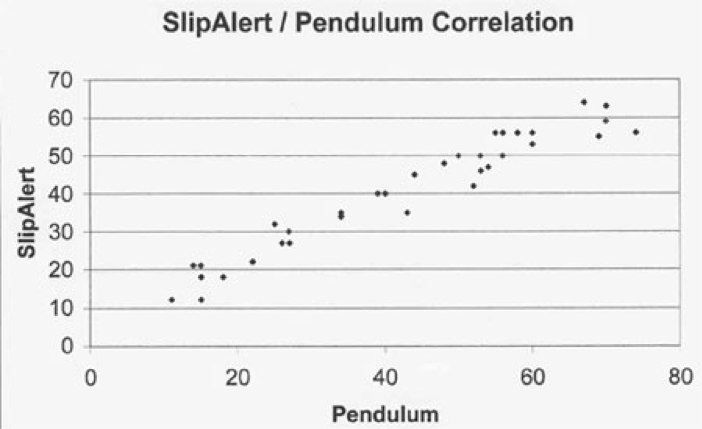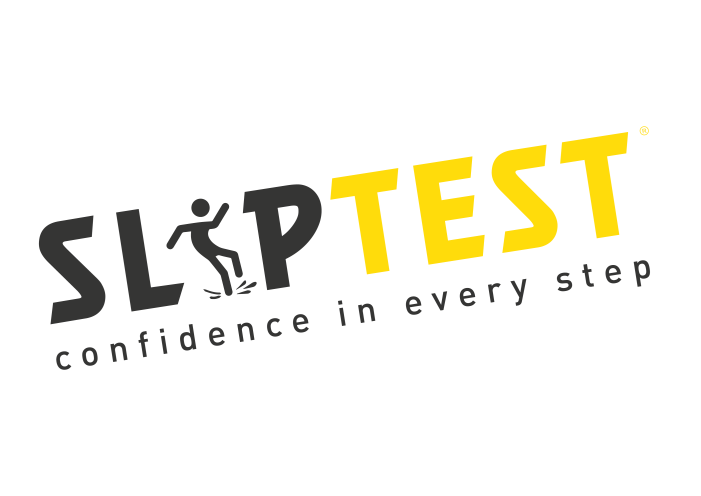Services
As flooring safety experts, see the services we offer to help our customers manage the risk of Slips, Trips and Falls.
SlipTest are total flooring safety experts and we offer our customers a number of floor testing and consultative services to ensure you are getting the best performance from your floors and responsibly managing the risk of Slips, Trips and Falls on your premises.
Our service enables you to demonstrate a proactive approach to identify the gap between how the floor should perform and how it does perform and the consequential activity you have taken to minimise this gap.
SlipTest are the provider who offers both the Pendulum and SlipAlert test methods. All tests are approved by the British Standard and HSE, providing piece of mind that you can trust in the results you obtain from the test. Our experienced technicians - in the field will advise you on the choice of equipment to obtain the most accurate results for each individual job.
Whilst the Pendulum is considered 'the preferred method of slipperiness assessment of HSL/HSE and the UK Slip Resistance Group' the SlipAlert is the only other method the HSE/HSL have suggested 'should be regarded as a good indication of available friction, lending itself to risk assessment, monitoring of floor surfaces and evaluating & monitoring cleaning regimes' (Evaluation of the Kirchberg Rolling Spider and SlipAlert Slip Resistance Meters HSL/2006/65)
PTV (Pendulum Test Value) is the most recognised language in the UK and the value you will be asked about if you are facing legal action as such Dr Malcolm Bailey devised a formula, when designing the SlipAlert, that can be used to convert the SlipAlert readings into PTV, this is a service that SlipTest will automatically carry out for you if the SlipAlert has been used in testing. Dr Malcolm Bailey is also the writer of BS7976, and the Creator of the Pendulum Standard.
There is a very high correlation between SlipAlert and the Pendulum in both wet and dry conditions across a range of surfaces. The HSE in the UK states ‘The extended testing of SlipAlert showed a good correlation with the Pendulum test’. SlipTest also regularly carry out their own comparison work to cross check correlation between the two pieces of equipment.
There are pros and cons around each piece of equipment, and both have strengths over the other in given environments, which is the reason SlipTest use both.
The SlipAlert gives a more visual measure than the Pendulum, as the SlipAlert machine, runs as far across the surface as the person would skid, where as the pendulum tests a 13cm area.
On the flip side the Pendulum is able to test sample surfaces because it only needs a small area to measure, where as the SlipAlert would need a longer run and so lab testing would be carried out using the Pendulum.
The Pendulum can also test baths and shower trays with special attachment, again this is not possible with the SlipAlert
However, the Pendulum is not accurate for testing ramps and is difficult to set up and use accurately on textured or uneven surfaces, it is also more time consuming to use, so if there is a Health & Safety reason to be on and off site quickly the SlipAlert would be more effective. Similarly, the Pendulum can be affected by weather condition if testing outside, for example in strong winds and rain the pendulum results can be impacted.
The Pendulum, is generally speaking, more widely recognised due its longevity however we believe it’s important to assess each situation and environment and make an informed decision as to the best piece of equipment to produce the most accurate results.
Did you know?
So far this year slips have cost society at least:
50%
of all accidents to the public are slips and trips.



